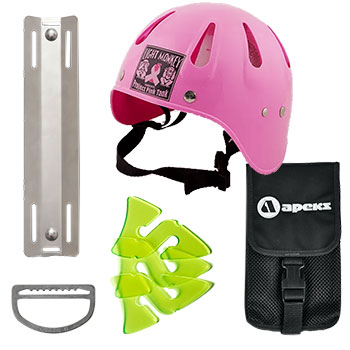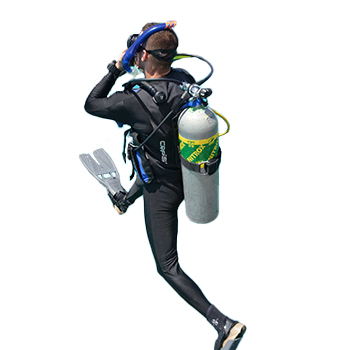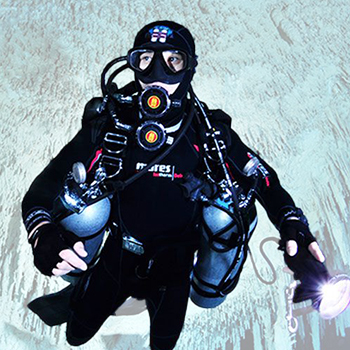Technical Diving Classes
Learn MoreTechnical Diving Classes
Technical diving offers an intense yet rewarding challenge for those looking to push their limits and discover new aquatic frontiers. It involves diving deeper and longer than conventional recreational limits, often utilizing specialized equipment and techniques. Our technical diving courses are meticulously structured to equip divers with the skills and confidence needed to safely enjoy these advanced diving experiences.
 Accessories
Accessories Open Circuit
Open Circuit Overhead
Overhead Service
Service ProfessionalLoading...
ProfessionalLoading...Technical diving classes are designed to address the unique demands and potential risks of these challenging dives. They focus on the mastery of advanced buoyancy control, gas management, and emergency procedures.
Our classes span a spectrum of environments such as deep-sea, cave, and wreck diving, which require divers to be adept in navigation and problem-solving under demanding conditions. By curating a diverse selection of related products for each category, Dive Right in Scuba ensures that every technical diver is well-equipped and prepared for their underwater endeavors.
Overview of Technical Diving Classes
Read moreAt Dive Right in Scuba, we know that technical diving pushes the boundaries of traditional scuba diving through complex skills, advanced equipment, and diligent risk management across diverse environments.
Equipment Requirements
Technical diving demands specialized equipment that supports extended range and depth. It is crucial to have:
- Redundant life-support systems: This typically includes double regulators and air sources.
- Tech-specific exposure suits: Depending on the dive, this could be a drysuit for cold water or a compressed neoprene wetsuit for warmth without excessive buoyancy.
- Dive computers and depth gauges: Essential for monitoring decompression limits and navigating.
Risk Management
Safely engaging in technical diving requires an in-depth understanding of:
- Deep dives: Surpassing 40 metres/130 feet, requiring advanced knowledge of effects like nitrogen narcosis.
- Overhead environments: Such as caves or wrecks, where direct ascents to the surface aren't possible.
Technical Diving Courses
At Dive Right in Scuba, we understand the nuanced pathway divers undertake to become proficient in technical diving. Our courses are designed for a range of skill levels, from those just starting out to seasoned divers looking to expand their expertise with advanced and specialty techniques.
Introductory Courses
For divers seeking to initiate their journey beyond recreational limits, Introductory Courses establish a strong foundation. These courses typically cover basic technical diving skills, equipment use, and planning for decompression. Our introductory offerings ensure divers are well-prepared for venturing deeper with safety and confidence.
Advanced Courses
Divers ready to push further will find Advanced Courses essential for expanding skills and knowledge. These courses build upon initial technical training, focusing on complex dive planning, advanced decompression strategies, and handling multiple gas mixtures. Mastery of these advanced concepts enables divers to explore challenging dive environments.
Specialty Courses
Specialty Courses offer focused training on specific aspects of technical diving, like cave diving or wreck penetration. With Dive Right in Scuba, divers can fine-tune their expertise, learning from experienced instructors about niche environments and specialized equipment, and techniques required to navigate them proficiently.
Skills Development with Master Course
In the technical diving master course, the development of specific skill sets is crucial to ensuring safety and enhancing dive experience. At Dive Right in Scuba, we prioritize these skills to equip our divers with the confidence and capability needed to handle the demands of technical diving.
Buoyancy Control
Mastering buoyancy control is essential. It reduces the risk of accidental contact with delicate marine life and optimizes air consumption. In technical diving, diver must achieve pinpoint precision in buoyancy, which is facilitated through exercises in various trim positions and with different types of gear configurations.
Gas Management
Gas management is another critical skill, which includes planning gas reserves for unexpected situations. Technical divers must learn to calculate gas consumption rates and adhere to strict turn-pressure points to ensure they have enough gas to return safely, including a sufficient supply for their dive buddy if needed.
Emergency Procedures
Knowledge of emergency procedures can make the difference between a safe return and a dire outcome. This involves practicing responses to potential scenarios such as gas supply failures, lost diver protocols, and equipment malfunctions. Technical divers are trained to handle such situations calmly and efficiently.
Our ServicesDRIS EventsThey SayHere For YouWe know looking at Scuba Gear can be challenging.
Real Dive Shop, Real Divers, Real Answers!
Click here to email us so we can help you find the best options. Want to talk to a live person? No worries!
Call us at 815 267 8400 or hit us up on live chat!Copyright © Dive Right in Scuba.All Rights Reserved.

